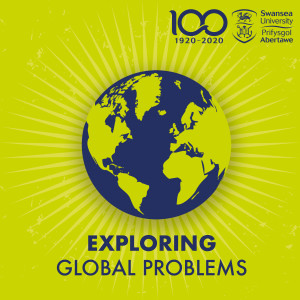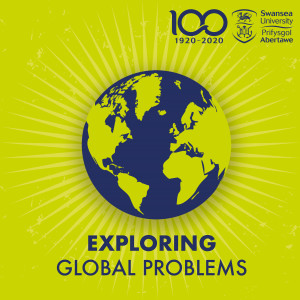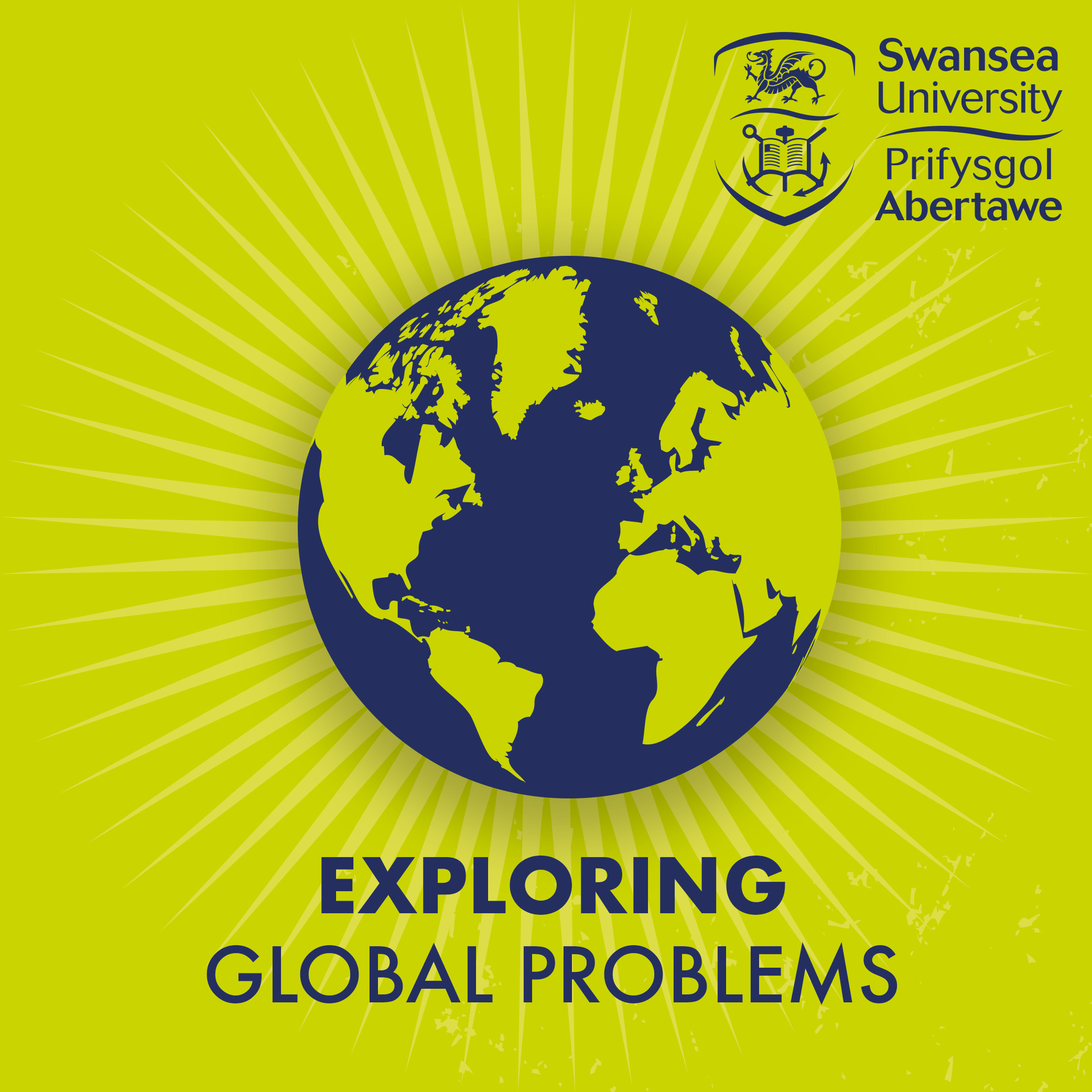Episodes

Thursday Oct 31, 2019
1. Climate change - reading the past in tree ring data
Thursday Oct 31, 2019
Thursday Oct 31, 2019
Global temperature changes we have experienced in the twentieth and twenty-first centuries are unprecedented in terms of speed, suggesting a real climate emergency. Professor Mary Gagen, of Swansea University’s Geography Department, measures tree ring data – ‘weather stations across the world’. Her research focuses on climate change over the last few thousand years, to determine how our current global changes compare to recent history.

Thursday Oct 31, 2019
2. The truth about antibiotics: will maggots save the human race?
Thursday Oct 31, 2019
Thursday Oct 31, 2019
The world is losing the battle against bacteria and is running out of effective antibiotics…but can maggots save the human race? In this episode, Biomedical Scientist, Professor Yamni Nigam, discusses her research into wounds and antimicrobial resistance. Yamni talks about using maggots to combat the antimicrobial crisis and heal infected wounds while working to overcome the “yuck factor” associated with these creepy crawly medical powerhouses.

Thursday Oct 31, 2019
3. Is there a ‘digital darkness’ descending?
Thursday Oct 31, 2019
Thursday Oct 31, 2019
How a human-centred approach to digital technology helps to address global problems. Computer Scientist, Professor Matt Jones, discusses his research into street-speaker systems in India and how working with emergent users to design technology makes a real difference to their lives. Matt also talks about a ‘digital darkness’ in terms of privacy, artificial intelligence, the breakdown in face-to-face communication and how we can use a human-centred approach to overcome this.

Wednesday Nov 13, 2019
4. The devastating effects of “legal highs”
Wednesday Nov 13, 2019
Wednesday Nov 13, 2019
They were known as “legal highs”, and they pose a significant threat to public health. Programme Director for Pharmacy at Swansea Dr Amira Guirguis and Dr Sam Blaxland explore the relationship of vaping to recent deaths in America, and how Novel Psychoactive Substances (NPS) can be better understood, classified and treated.

Wednesday Nov 20, 2019
5. There’s more to life than money: how do we measure happiness?
Wednesday Nov 20, 2019
Wednesday Nov 20, 2019
From supermarkets to high speed trains, politics to lottery tickets; economics is embedded in all that we do. Dr Simon Rudkin explains how economics isn’t just about maths and money; our happiness in our choices is paramount.

Tuesday Nov 26, 2019
6. Circular economy: discouraging the throwaway culture
Tuesday Nov 26, 2019
Tuesday Nov 26, 2019

Wednesday Dec 04, 2019
7. Preserving heritage sites in conflict zones: does this help communities to recover?
Wednesday Dec 04, 2019
Wednesday Dec 04, 2019
Dr Nigel Pollard discusses his work on the protection of heritage in conflict zones around the world and why it is important from both a moral and philosophical perspective. In this episode of Exploring Global Problems, drawing on his work in places such as Syria, Egypt and Italy, Nigel explains how protecting heritage can help to rebuild communities broken apart by conflict. He talks about the importance of heritage sites to local and national economies and how armed forces on peace-keeping missions can win the support of local communities by respecting local heritage.

Wednesday Dec 11, 2019
Wednesday Dec 11, 2019
The World Health Organisation has called it a public health crisis and burn injuries have been described as a “disease of poverty”. In this episode, Consultant Plastic Surgeon and Professor of Human and Health Sciences Tom Potokar discusses his research into burn injuries and his work to improve their care and prevention in conflict environments and poorer parts of the world. Tom talks about working in countries such as Sierra Leone, Afghanistan and Nepal to improve the care of victims of burn injuries by building the capacity of those treating them.

Wednesday Dec 18, 2019
9. The gig economy - think you know the benefits? Think again.
Wednesday Dec 18, 2019
Wednesday Dec 18, 2019
Is exploitative work becoming the new normal? Does the world of work have to be this way? Professor Geraint Harvey of Swansea University's School of Management deliberates new forms of work, which have become known as the gig economy, what they look like and how they impact the worker. Think you know the benefits to the gig economy? Think again.

Wednesday Jan 08, 2020
10. Clean energy: revolutionary research to generate, store and use renewable energy
Wednesday Jan 08, 2020
Wednesday Jan 08, 2020
Dr Ian Mabbett talks about SUNRISE, a project which aims to develop new materials for energy generation, storage and use that are integrated into buildings. The project takes ideas from labs into production, ideally locally where needed, then produces buildings that act as energy hubs across India, where 300 million people lack reliable 24/7 power. The work impacts on many of the UN’s Sustainable Development Goals, including affordable and clean energy, clean water and sanitation; and responsible consumption and production.

